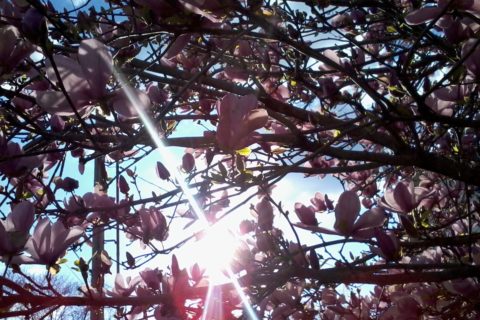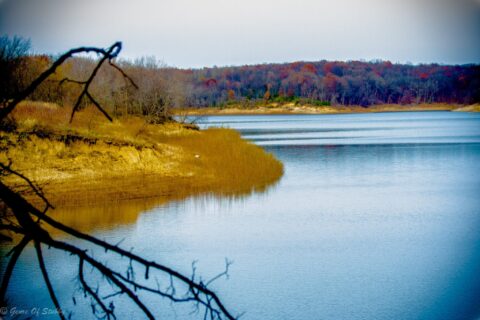I’m a Druid, which means a lot of things to a lot of different people.
There are Neo-Pagan Druids who worship Earth-Mother and Sky Father and numerous other personal and household gods; there are Christian Druids who live by the philosophy Jesus taught, and worship a Divine Creator and generally believe Christ is the Son of that Creator, but not quite the same way most Christians do, and incorporate a nature-based, dare I say science-based interpretation of the origins of humankind and the planet; there are Jewish Druids, often called Drews, who practice Qabalah and revere Nature; and there are totally non-religious Druids who are kind of like Buddhists, who revere great teachers, the greatest of whom is our Earth-Mother, but though they acknowledge them, don’t necessarily worship any gods or goddesses at all. I am, at last survey, unaware of any Druid-Islam hybrid, but I can totally imagine Druids and Sufis mashing it up, and I would call them Drufis. I sincerely hope that there are some. I am aware of some Shinto-Druids in Japan, but I know very little about them.
My own beliefs, or lack thereof, rest with the non-religious variety of Druid. I revere Earth-Mother as the personification of the Spirit of the Planet, and in fact have had moments of authentic contact with Her (which doesn’t make me a believer because I know She is quite real). I don’t worship Her because that would feel really inappropriate. I love Her, am grateful for Her abundance, and we have been collaborators on some terrific co-creations, songs, sons (mine and a couple others), and the occasional garden. I do not feel subordinate to Her; we are loving equals in creation and joy.
But worship? Well, that’s just not in my nature. I could never get worship down, hard as I would try. Reverence I can do until the cows come home. I can do respect like a boss. I’m good with unconditional love, and have some chops with oneness and surrender. I guess I just don’t think the Divine is separate enough from our most eternal Selves to merit actual worship.
So why bother celebrating anything?
What on Gaia would be the point of not celebrating? The entire history of the formation of this planet is something to be celebrated. 4.5 billion years ago, planets started forming around a fledgling Sun. Gaia was one, but shared an orbit with another planet called Theia, who was smaller, about the size of Mars. Unfortunately for Theia, there was a collision about 4.3 billion years ago, and the smaller planet lost, but as a result of that event, she created what is now Luna, and knocked Gaia off axis by 23.5 degrees. That axial tilt is what gives us our seasons, which is one of the things that shaped life on Gaia, including humanity.
So really, from a science-based perspective, Theia is the Reason for the Season.
As a Druid, I revere Nature as my greatest teacher, and Nature includes the Sun, the Moon and all the rest of the Cosmos. So here is the story I choose to celebrate on the Longest Night of the Year.
Inside a massive dustcloud, things were . . . Becoming. Growing. Drawing pieces of themselves to themselves.
Remembering.
Gaia and Theia shared an orbit. Gaia larger and slower, Theia smaller and quicker. As the dust cleared away, and they saw more and more of each other, they fell in love. Theia was lithe and graceful, winsome and lovely. Gaia was warm and welcoming, powerful and beautiful. They smiled to each other across hundreds of thousands of miles, and sent each other psychic love notes. Gaia tried to catch up to the beautiful Theia, but could not match her speed. Nor could Theia slow down. They were locked in their orbits around the shining central Sun.
They drifted further and further apart until they were on opposite sides of the sun, and could barely see each other, little say feel the other’s presence. Gaia felt the loss of Theia’s presence like a physical pain. She felt desperately alone in the cold Cosmos.
Theia felt like she was spiraling out of control, unable to be the master of her own fate. Her soulmate languished nearly 186 million miles away, and there was nothing she could do to ease her pain. Theia felt the cold and the distance like a curse.
But slowly, Theia realized she was gaining on Gaia, ever so slightly, century over century, she was catching up, a little bit at a time. Her heart leaped and she fairly danced in her orbit. She cried out to Gaia, “I’m coming to meet you, my love!” And Gaia felt hope rise like life itself.
But the wise old Sun had seen it all before, and remembered many things from other incarnations. “Oh, my little love,” he said to Theia. “That’s not how it goes. You won’t be together; you will be destroyed. You will collide, and the collision will vaporize you, and you’ll take out a giant piece of her with you.”
“I don’t believe you,” Theia said, suddenly more chilled than ever.
The Sun felt compassion for Theia, for he loved all his planets like a father loves his children. He shook his head. “My little bright one, I would never lie to you, and I would never try to hurt you. I am sorry, but it is true. You will collide, and when you do, you will be no more.”
Theia cried in anguish, but hid her pain from her true love. She pondered deeply, trying to find a way out, but there was nothing she could do. She was locked in her orbit, and so was Gaia. Theia resolved to create something new from her own destruction.
“My love,” she called to Gaia, “Let us use the power of our love for each other to make a child who can be with us always.”
Gaia smiled. “Oh, I would love that! Yes! A child!” And so they talked of the beautiful, shining child to come, and decided to call her Luna.
More centuries passed and finally, Theia was in reach of Gaia’s surface. Gaia held her arms open to her love.
Theia collided, and the Sun’s prediction came true. Theia vaporized within minutes, and vaporized a giant section of Gaia at the same time. Gaia felt herself tip out of balance; she screamed and howled in pain; her grief knew no limits. Her great heart flew apart into the new dust cloud that had formed from the remains of her true love and her own body.
But the child they had dreamed of began coalescing right away, pulling itself together from parts of its mothers. It grew, and as it grew, Gaia’s wound began to fill in with her own dust, mingled with her lover’s. After a few thousand years, she could hear Theia whispering to her. “I’m still with you, see? Always part of you. We now share more than an orbit; we share a child, and we share a life. You are the spirit of the physical planet, and I am the spirit of the World Beyond, the OtherWorld. Together, we will bring life to this part of the Cosmos, and nourish it, physically and spiritually. And our child, Luna, shall light their way at night, while our brother Sol shall provide light and strength through their days.”
Luna grew up and her orbit shifted slightly away from Gaia, as happens with all children, and once Gaia’s emotions settled down and her volcanic activity subsided and her oceans stopped boiling, life began to emerge on her surface. Gaia became home and mother to multitudes of beings, including Humanity. Theia shaped our spirits as Gaia shaped our bodies, and Luna reminds us always to live in harmony with the Great Cycles of Nature. Because of Theia, we have Winter that turns to Spring that turns to Summer that turns to Autumn; she is indeed a Shining Wheel.
So two came together to create . . . three: Gaia, Luna and Theia, who rules over the OtherWorld. The Mother, the Child, and the Holy Ghost.
Now, the old Druids may not have known about Theia, but they may have intuited her and called her by another name, like Arianrhod, the Silver Wheel (the name for the Greek goddess Theia, mother of Selene, the moon, translates as “wide-shining”). But we know about her now, and as Druids, it’s our responsibility to adapt and create stories that help us to remember events and integrate knowledge into our energy bodies. I love the idea that Gaia and Theia became one in order to birth Luna to be a constant companion for lonely Gaia, and I also love the idea that Theia became the Spirit of the OtherWorld.
It’s a real trinity, Gaia, Theia, Luna. It’s a story of selfless love and the birth of hope. It enhances our celebration by reminding us that the gifts we give in the spirit of love can help to create something new in the world, so maybe we will give more responsibly and thoughtfully. What’s not to celebrate?
Blessed Solstice, and Gaia, Theia and Luna bless us, every one!





Discussion
Comments (1)
Comments are closed.